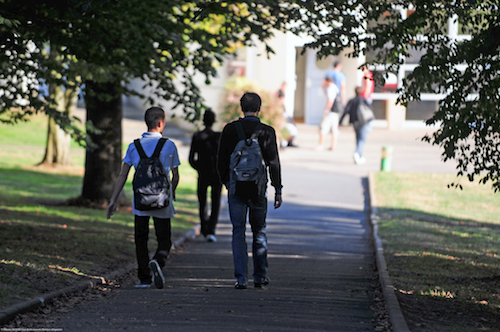English versionStudyGRADUATEEngineering Programme "diplôme d'ingénieur"> Course specialisations YRS 2&3
Scientific Challenge 2024

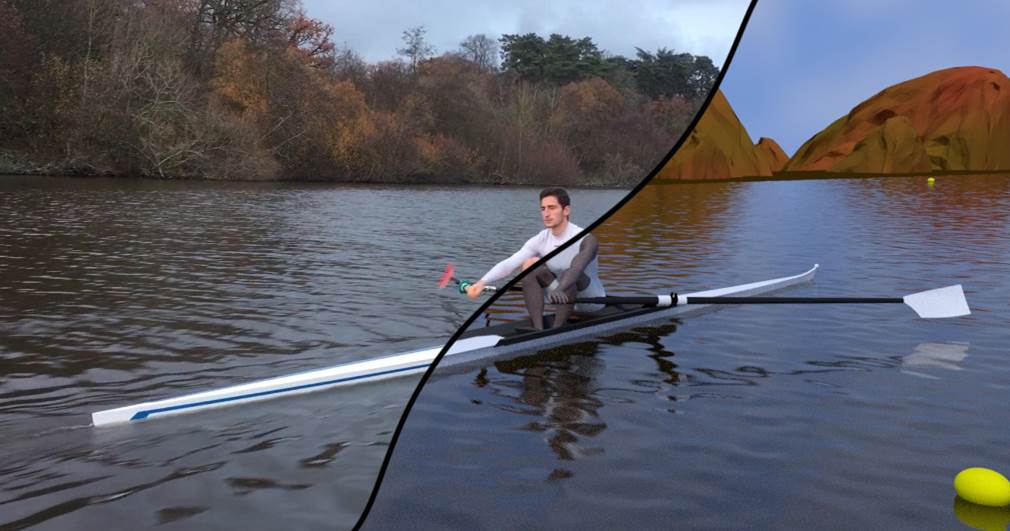
High fidelity modelling of the complete boat-oar-rower system
- Overview
-
In the run-up to the Paris 2024 Olympic and Paralympic Games, Centrale Nantes created the Scientific Challenge 2024 project-based specialisation in September 2018 in partnership with the CREPS des Pays de la Loire and the French Rowing Federation, in order to improve physical and technical expertise in rowing.
This project is in line with research work conducted in the LHEEA and performance support for water sports.
The Simulator of Performance in Rowing (SPRing) has thus been developed: a high-fidelity simulator of the complex boat-oar-rower system, which aims to establish objective criteria to respond to problems experienced in the field and guide decision-making for coaching staff.
The first three cohorts of the specialisation have successively:
1. developed the first version of the simulator and demonstrated its feasibility
2. improved its functionality to make it more accurate and realistic
3. automated the whole calculation sequence to make the simulator operational in terms of production
Objectives for 2021/2022:- To get to grips with the simulator and confront it with the reality in the field in order to provide initial insights and to guide coaches and rowers in their decision-making
- Undertake additional developments on the simulator, mainly with regard to kinematic modeling of the rower, additional variables to be analyzed and realistic visual rendering.
- To run training sessions for coaches in particular with simulation results that tangibly illustrate the mechanical laws governing oar propulsion.
Provisional Schedule
- Admission
-
International students can follow this specialisation, taught in French, via:
- A double degree programme - Open to international students selected by our partner institutions. Selected students spend two years studying courses from the engineering programme at Centrale Nantes. This usually includes one year of the common-core engineering curriculum followed by one year of specialisation. Double degree students are typically accepted after successfully completing two or three years of higher education in their home institution.
- The fast-track engineering programme: Open to students with a Bachelor's or equivalent degree in science. Our fast-track programme gives international students who are qualified to bachelor level the opportunity to gain the 'diplôme d'ingénieur' in just two years.
- Course Content
-
Project-based learning
This innovative project-based teaching method will allow students to acquire competences in a different way thanks to:
- A customised training programme (100 hours of courses)
- Agile and autonomous organisation
- Tailored support
- Immersion in the world of sports engineering
- Scientific challenges linked to industrial issues (naval hydrodynamics, MRE, digital simulation, 3D modelling etc.)
- An opportunity to take concrete action on an ambitious performance support project in the run up to the 2024 Paris Olympics
Courses (~100 hours)- Project Management
- Tool for Scientific Computing and HPC 1
- From reality to 3D model Numerical modelling, CFD and FSI
- Tool for Scientific Computing and HPC 2
- Development, completion and outcome
The rest of the time is devoted to independent project work:
- Framework and appropriation
- Simulator Development
- Studies and responding to field issues
- Completion and outcome
Skills developed
- Project engineering
- Numerical simulation
- Software development
- Managing complexity
- Teamwork
- Knowledge transfer
Download 2021/22 syllabus - Examples of internships
-
Project-based learning is highly valued by companies. Student internships are quite varied, and reflect the diversity of backgrounds:
- Development of hydrodynamic meta-models and CFD validation, Artemis Technologies, UK
- Graphic reconstruction of an electronic horizon, Renault Software Labs, Sophia-Antipolis
- Executive Assistant: Project Management and Financial Reporting, Haemers Techologies, Brussels
- Thermo-hydrodynamic modelling on a heat exchanger, Naval group, Nantes
- Numerical simulation of ship maneuvers, Numeca Int., Brussels,
- CAD and subsystem design of the ‘Heron Tree’, Les Machines de l’île, Nantes
- After the specialisation
-
Fields of activity
- IT
- Modelling
- Scientific computing
- Hydrodynamics
- Sports performance analysis
- Management
- Communication

Contact
direction.ingenieur@ec-nantes.fr
Programme Supervisor
Alban Leroyer
Sports Research Contact: Sophie Barré (CREPS, Pays de la Loire)
Sports Partner: Fédération Française d'Aviron (French Rowing Federation)
Visit the SPRing project website
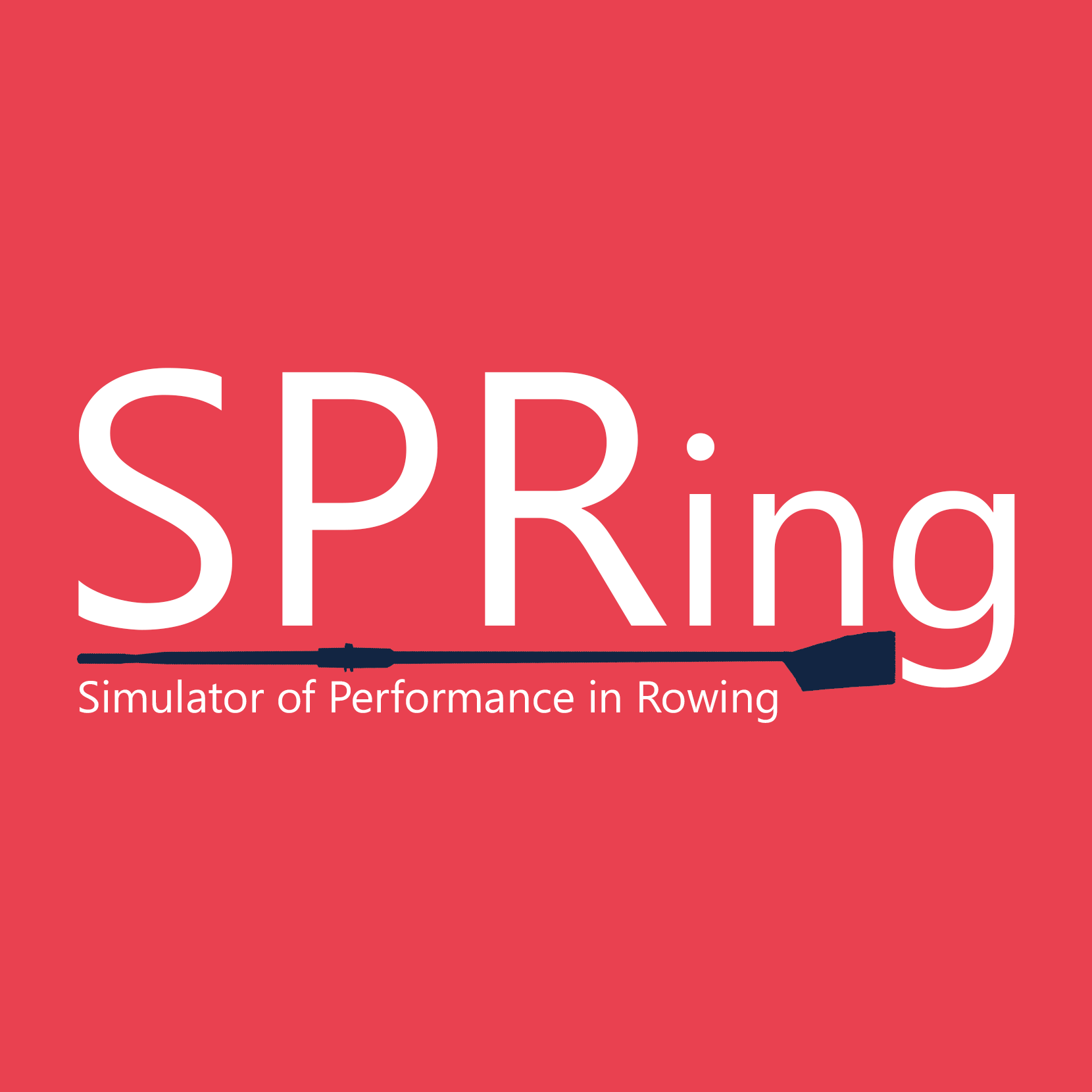
Download the brochure
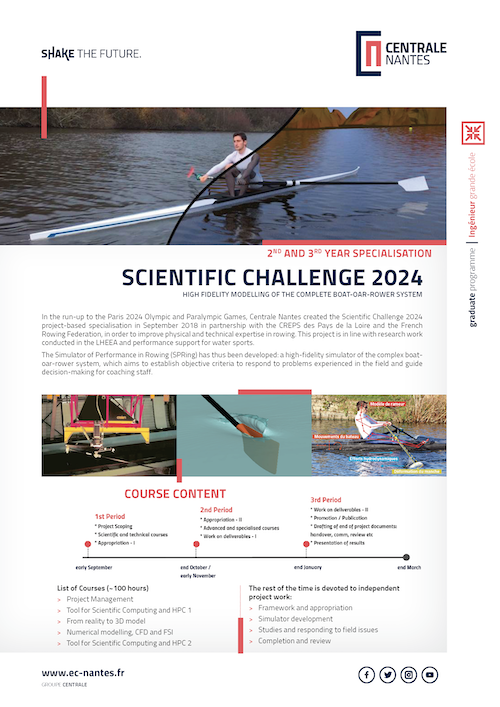
Student Feedback
Watch the video (English subtitles) to learn more about this specialisation from former student Emmanuel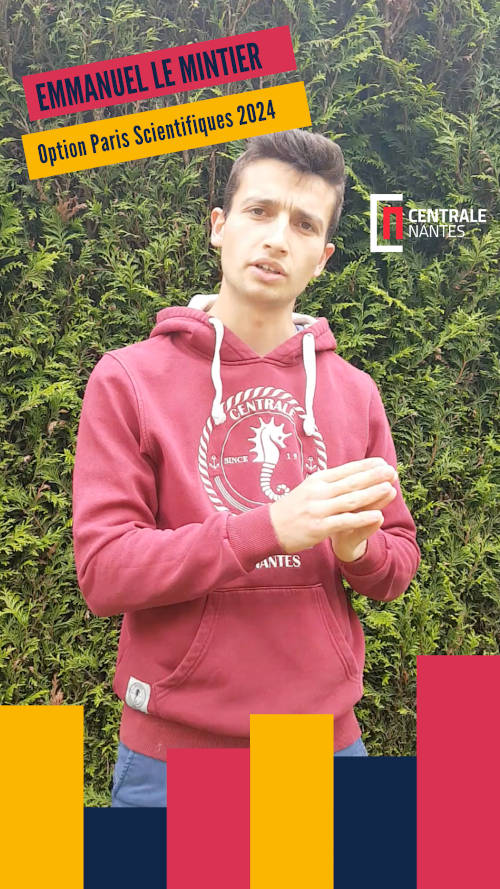
Engineering Programme
Study
- UNDERGRADUATE
- GRADUATE
- Engineering Programme "diplôme d'ingénieur"
- Fast-track Engineering Programme
- 5 Master of Science (MSc) Programmes with 10 Specialisms
- Integrated Master-PhD Track
- 5 Erasmus Mundus Joint Masters
- 3 Joint Master's Programmes
- Advanced Master's "Mastère Spécialisé ® "
- Degree apprenticeship in partnership with ITII
- PhD
- EXCHANGE STUDENTS
- EXECUTIVE EDUCATION
- TUITION FEES AND FINANCING
- MEET OUR GRADUATES
- APPLY NOW
- INNOVATIVE TEACHING
- A VOCATIONAL APPROACH
- ENTREPRENEURSHIP
- CIVIC ENGAGEMENT
- DEGREE CERTIFICATES
- KEY DATES FOR THE ACADEMIC YEAR









